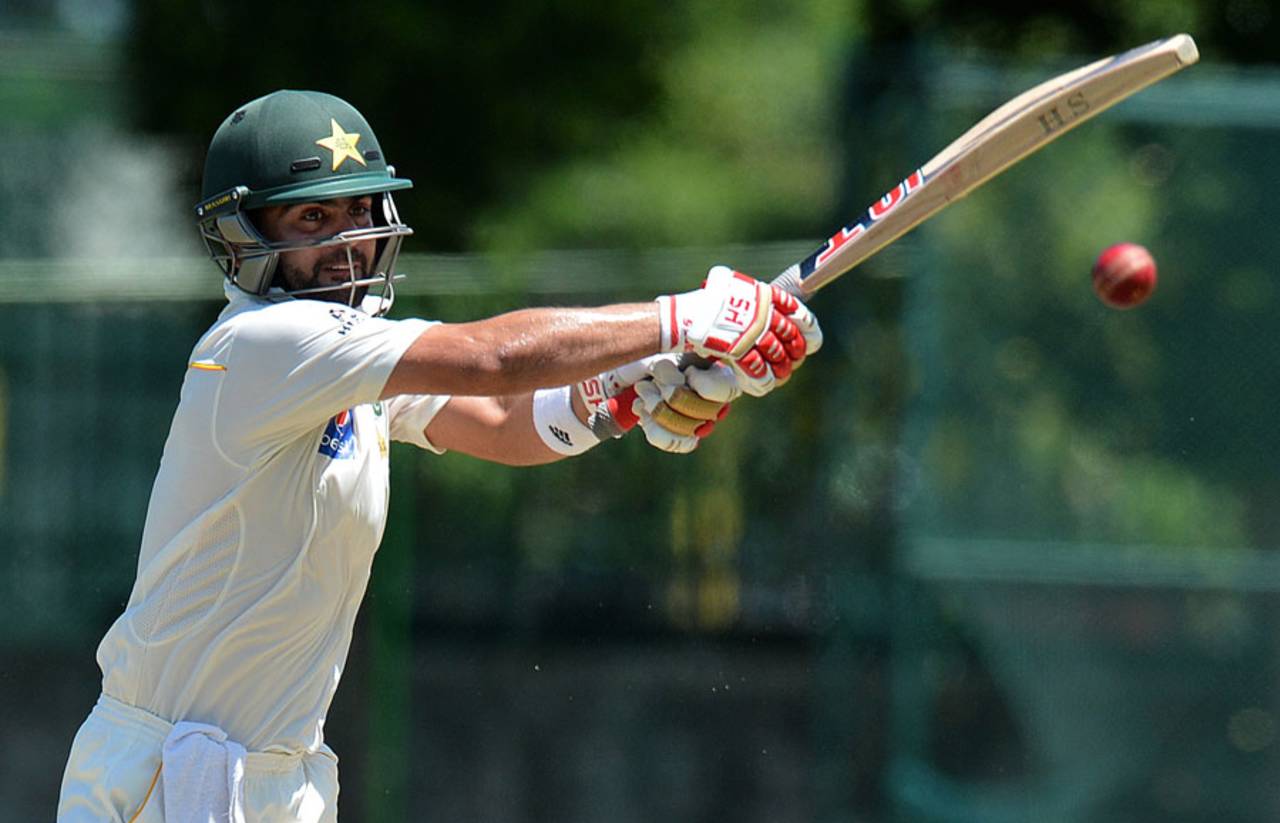Less than a year ago Pakistan appeared to have found a solution to a long-standing problem - their opening partnership. In 2014, Ahmed Shehzad became the first Pakistan batsman to have a hundred in all international formats, and with three centuries he averaged 48 after nine Tests. He held so much promise, but now his progress has started to stall.
Before the second Test against Sri Lanka in Colombo, the Pakistan coach Waqar Younis had a personal session with Shehzad over two days that involved a pep talk and batting practice. About four new balls were used to prepare him for a pitch that was expected to help the fast bowlers, but Shehzad lasted 12 minutes before nicking Dhammika Prasad to slips for 1.
Shehzad has had a more or less a consistent run in the Pakistan side, and with good reason. Despite Pakistan being infamous for their inconsistency in selection, Shehzad has always remained on the radar, beginning his career as a Twenty20 opener and then breaking through into the other formats. His flair and adaptability were stand-out features.
Shehzad's selection wasn't unwarranted; he was international material. His selection wasn't influenced. He wasn't the son of a politician, businessman or an influential person in Pakistan. Hailing from a middle-class family that lived in a modest house near the famous shopping street Anarkali in Lahore, Shehzad had real talent.
But though his numbers might not indicate it - a Test hundred against New Zealand three innings ago in November and moderate limited-overs success since - something has changed for Shehzad. A top-notch batsman has started to plateau, and not for want of backing from his captains and coaches.
A lot has happened in Shehzad's life since his 176 against New Zealand. In 2015, after a poor World Cup - 227 runs at an average of 32 with two fifties against Associates - Shehzad was dropped from the Pakistan squad for the tour of Bangladesh because of attitude issues. He was described as not giving top priority to cricket.
Perhaps the lifestyle an international cricketer enjoys had become more important to him. At 23, an impressionable age, Shehzad enjoyed a close friendship with Shahid Afridi, witnessing at close quarters a stardom that has endured over decades. Having become one of the most popular cricketers in the country, he did several TV commercials and was the subject of a lot of media hype. He became well known for a penchant for taking selfies and publicising them. Cricket appeared to take a back seat and his axeing from the Bangladesh tour was to make him realise the value of the Pakistan cap.
There is another factor that cannot be ignored. His century against New Zealand ended with him being hit on the helmet by a bouncer from Corey Anderson. Shehzad was later diagnosed with a minor skull fracture, but returned to international action in less than a month. That delivery might or might not have made a dent on Shehzad's psyche, but contemporary England cricketers Stuart Broad and Craig Kieswetter have spoken about the difficulty of coping with a severe blow to the head, and Imran Khan used to say that Zaheer Abbas was never the same after he got a hit by a bouncer from West Indian fast bowler Andy Roberts.
A month's layoff may have been enough to recover from the physical damage caused by the Anderson bouncer, but questions must be asked whether the PCB assessed Shehzad's frame of mind before returning him to competitive cricket.
So far, Shehzad has not fallen victim to the vagaries of Pakistan's team selection, and with good reason. His was a career that began brightly, but now it has started to flicker and unless he is more consistent, he might find competitors like Shan Masood and Sami Aslam pushing for his place.
Umar Farooq is ESPNcricinfo's Pakistan correspondent. @kalson
